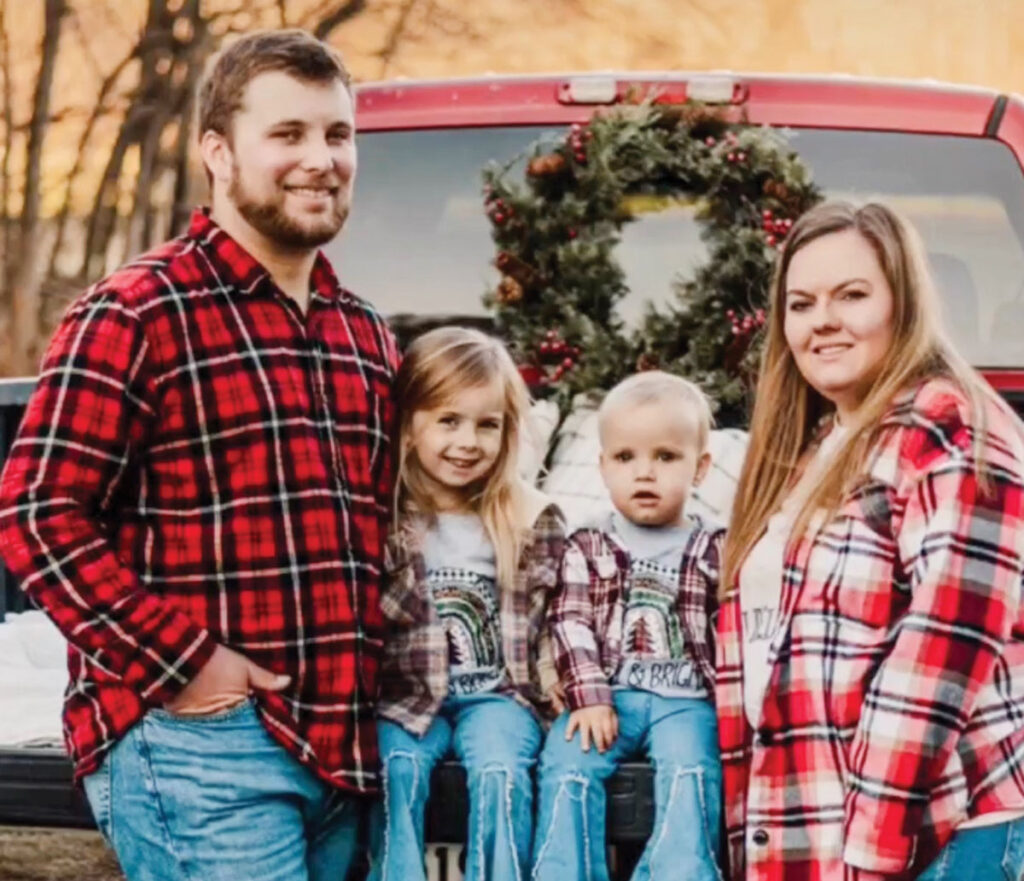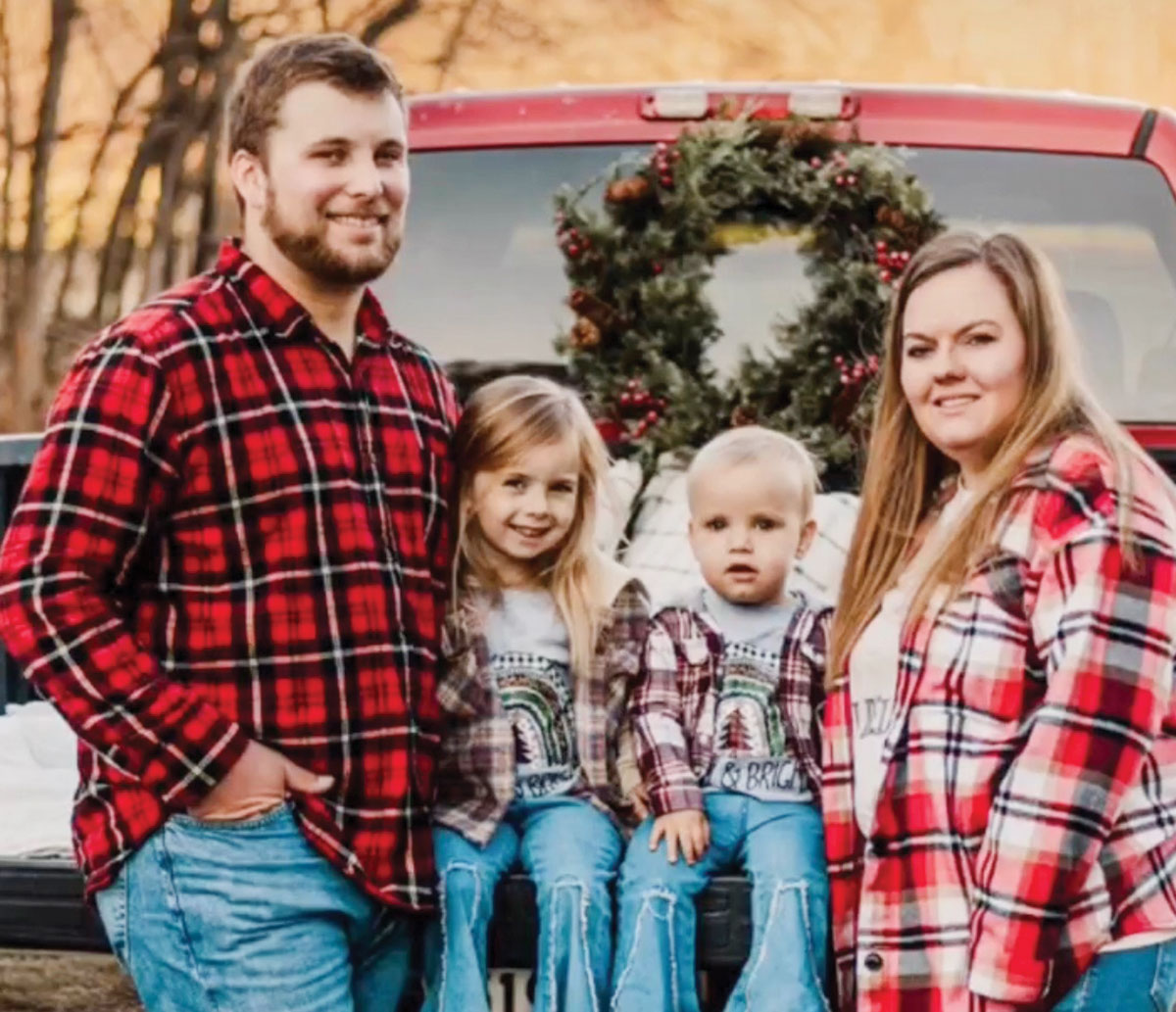
Hometown: Fayetteville, Ark.
Family: Husband, Chaz Williams; and daughters Braelyn (6) and Brynlee (3)
In Town: Emily Williams has been a teacher for eight years and is currently in her first year as a second-grade teacher in Farmington, Ark. Before coming to Farmington, Emily taught pre-K in Springdale for seven years prior to coming to Farmington.
In the Country: Emily and her family moved to their 23-acre farm about two years ago.
“We had animals when I was younger, so I’m learning as I go,” she said “The first thing we got were pigs.”
Emily said she and Chaz started with Kunekune, then added Potbelly pigs.
They currently have four breeding females and two KuneKune boars. Emily said the exact number of pigs on the farm varies as they have litters year-round and pigs of various ages.
In addition to the pigs, the Williams family also has a flock of chickens and ducks.
“I have a pretty good clientele of people who buy eggs from me regularly,” Emily explained. “It’s a mixture of teachers I work with and other people we know who live close to us. I have a lot of people who ask specifically for duck eggs, then people who don’t want any duck eggs.”
The family has 10 ducks and about 20 chickens. Chickens are Wheaten Ameraucana and Welsummer. The mix of the two breeds creates an Olive Egger. Emily also sells chicks and ducklings she hatches.
“I have a friend who lives in West Siloam, who I got my chickens from, and sometimes we will switch eggs if I want one kind of egg or she needs more,” Emily explained.
She has worked with the University of Arkansas Cooperative Extension Service to bring an incubator and eggs into her classroom, but she hopes to bring her own hatching eggs in the future.
Having a career off the farm and a busy family, Emily said it can be challenging to get everything done, but she can catch up on projects in the summer months and prepare for winter while on Christmas break from school.
Emily shares her farm life with her students as much as possible.
“I have a lot of kids who are interested but don’t get to do the hands-on experience of interacting with animals,” she said.” The year before last, we did a ‘Kiss a Pig’ with our principal. I took a baby pig to school, and it spent the whole day in the classroom.”
As classrooms closed in the wake of COVID and “distance learning” became a new way of teaching, Emily used it to show children what life on the farm was like.
“I did a lot of videos of myself, just showing how I collected the eggs and what I did with them to get them ready to sell to someone and how important it is to handle them gently, to count them, to know what day they were laid. It was fun to show them and talk through what I was doing every day.”






